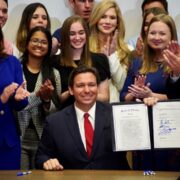Here is an example from World War II.
We all need positive role models–those heroic people who show us how to act or conduct our lives, especially when it’s defined by the courage to do what was seen as impossible or unpopular. When we think of folks such as Rosa Parks, we encounter such a positive role model, an ordinary but heroic person, but one about whom people should learn.
For me, there is a story I believe is worth sharing. It’s about everyday people who stepped up during a crisis. Most people have no idea about the story I will tell, and that’s exactly why I’m telling it. J. Elmer Morrish, a bank vice president, and Robert Emmett Fletcher, Jr. an agriculture inspector, are two people involved. Bankers Merle Carden and Louis Lopes are others.
Their story is about how they responded to President Franklin Roosevelt’s Executive Order 9066, issued at the beginning of World War II. The Order removed over 100,000 people of Japanese descent and banished them to isolated camps. Seventy thousand were U.S. citizens, and many had family members serving in the armed forces, like Daniel Ken Inouye, who was awarded the Medal of Honor and became a United States Senator.
The situation was serious. Here is a poster from May 3, 1942, in Redwood City, California: “All persons of Japanese ancestry, both alien and non-alien, will be evacuated from the above area by noon, P. W. T., Saturday, May 9, 1942.” Families had little time to settle affairs, such as selling automobiles, securing homes, and managing businesses. It is estimated that families lost billions during this forced removal.
However, some families had allies to turn to for help. Bankers, such as Merle Carden in Hayward, California, Louis Lopes in Watsonville, California, and J. Elmer Morrish, the vice president of the First National Bank of San Mateo County, acted heroically to help their removed neighbors in almost any way possible. They oversaw bank accounts, assisted with taxes, and managed property. Fletcher, the Sacramento, CA, Agriculture inspector, quit his job to care for the fruit farms of Japanese families during World War II.
These people are heroes all! But, today, I wonder if school-age children will read of their courageous acts. That’s because there is political pressure to sanitize much of the history taught in our public schools.
To fully appreciate the courage and humanity of these men, we would have to see them in the light of Executive Order 9066, which would shine a light on a dismal period of American history—one so grim that under President Reagan, every Japanese family that was removed was paid $10,000.
Sadly, according to the wishes of some parents and politicians, that episode of ours cannot be taught, and each child slighted would miss out on learning about such heroic folks as Morrish, Carden, Lopes, and Fletcher. Or would some mother, for her liberty, object because the story is too horrific and may cause feelings of disquiet?
To teach about and read about such lives is to model as best we can live as it should be. To do less is to cheat our children.



